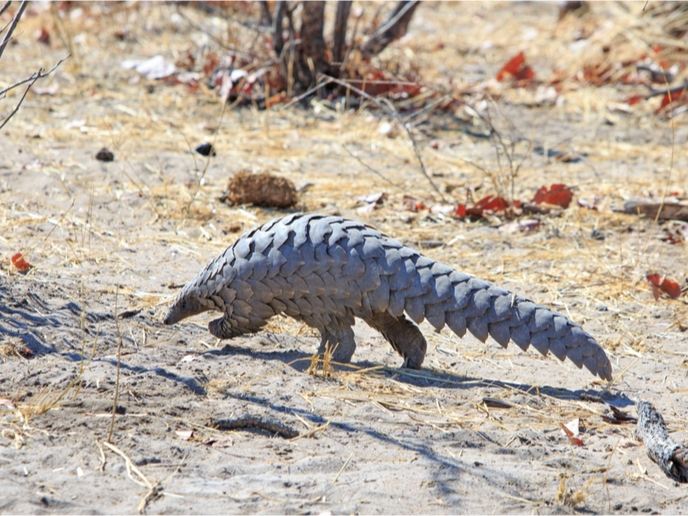BIOSEC questions security-inspired conservation strategies
Elephants killed for their ivory tusks, endangered species sought as hunting trophies, or pangolins smuggled for their meat and alleged health virtues… The consequences of the illegal wildlife trade (IWT) are devastating in many respects. We’ve all been recently acquainted with its impact on humans. But this is just the tip of a much larger iceberg touching upon many aspects of our lives. One of these aspects is none other than security. Did you know, for instance, that the IWT is often identified as a source of funding for organised crime and armed groups? Or that conservation organisations sometimes feel they have no choice but to partner with government armies or private military companies to protect endangered species? Or even that our own personal food security is at risk? The University of Sheffield-led BIOSEC project sought to better understand and fact-check this growing integration between conservation and security, in the context of a recently renewed focus on the IWT. Over a span of 4 years, the project team built pioneering theoretical approaches and generated new empirical data on both issues, in a fully integrated manner. “Since 2008, the spikes in the poaching of elephants and rhinos have forged a renewed sense of urgency. The rates of poaching have kept rising every year and there have been clear concerns that, if left unchecked, these rates would soon drive elephants and rhinos to extinction. Billions of dollars have been funnelled into conservation by donors, philanthropists, the private sector and individual citizens, and the most common response has been much more security-oriented,” says Rosaleen Duffy, coordinator of BIOSEC.
A real threat to security?
To study this trend, the project’s team collected information on conservation in Europe, Africa, the Americas and Asia. As their findings soon highlighted, the ‘security first’ approach is not without risk. First, it tends to leave less visible or charismatic species behind, as two team members highlighted by focusing on ‘plant blindness’ in debates around the IWT. Then, the involvement of armies and the private military has been found to lead, in some regions, to reports of intimidation, exclusion, dispossession and human rights abuses by conservation authorities. The project results also challenge some of the assumed facts surrounding the IWT. They notably disrupt the idea that there are distinct sites of production and consumption, point at racism in demand-reduction campaigns, and examine the mismatch between international conservation NGOs and grassroots organisations in Vietnam seeking to tackle the IWT. “We’ve also examined the notion of the ‘poacher as terrorist’,” Duffy explains. “The truth is that claims drawing a link between illegal wildlife trade and threat finance are made with little evidence, and that whatever evidence is offered sometimes stands beyond public scrutiny.” “In our research, we highlight how an overfocus on the IWT as a form of threat finance could mean that ineffective strategies are developed to tackle both the IWT and terrorism,“ she continues. “We show that there is a need for a much more sophisticated and nuanced approach.” So, could the focus on threat finance become somewhat of a blind spot for policymakers? Duffy certainly believes so. The project even identified examples where these links allow governments to engage in conservation as part of counter-insurgency strategies against resistant populations. If such actions remain unchecked, conservation risks becoming less about saving species and more about pushing a particular political agenda. “Meanwhile, using militarised responses may be storing up a range of problems for conservation and biodiversity protection in the future by alienating communities or unravelling trust between these communities and conservation agencies. There is also a lack of focus on the illegal trade in European species – eels, bears, songbirds and caviar are all sourced, traded and consumed within the EU. The attention and funding are focused on the IWT as a problem of Africa and Asia, but it is also a problem on our own doorstep,” Duffy notes. All in all, BIOSEC’s work is about trying to develop ideas and policies that are both effective and socially just. The project could still provide other lessons for policymakers in the near future, as conservationists are now shifting their attention towards the COVID-19 pandemic – more specifically the relationship between security, the IWT and zoonotic disease.
Keywords
BIOSEC, illegal wildlife trade, security, conservation, biodiversity, terrorism



